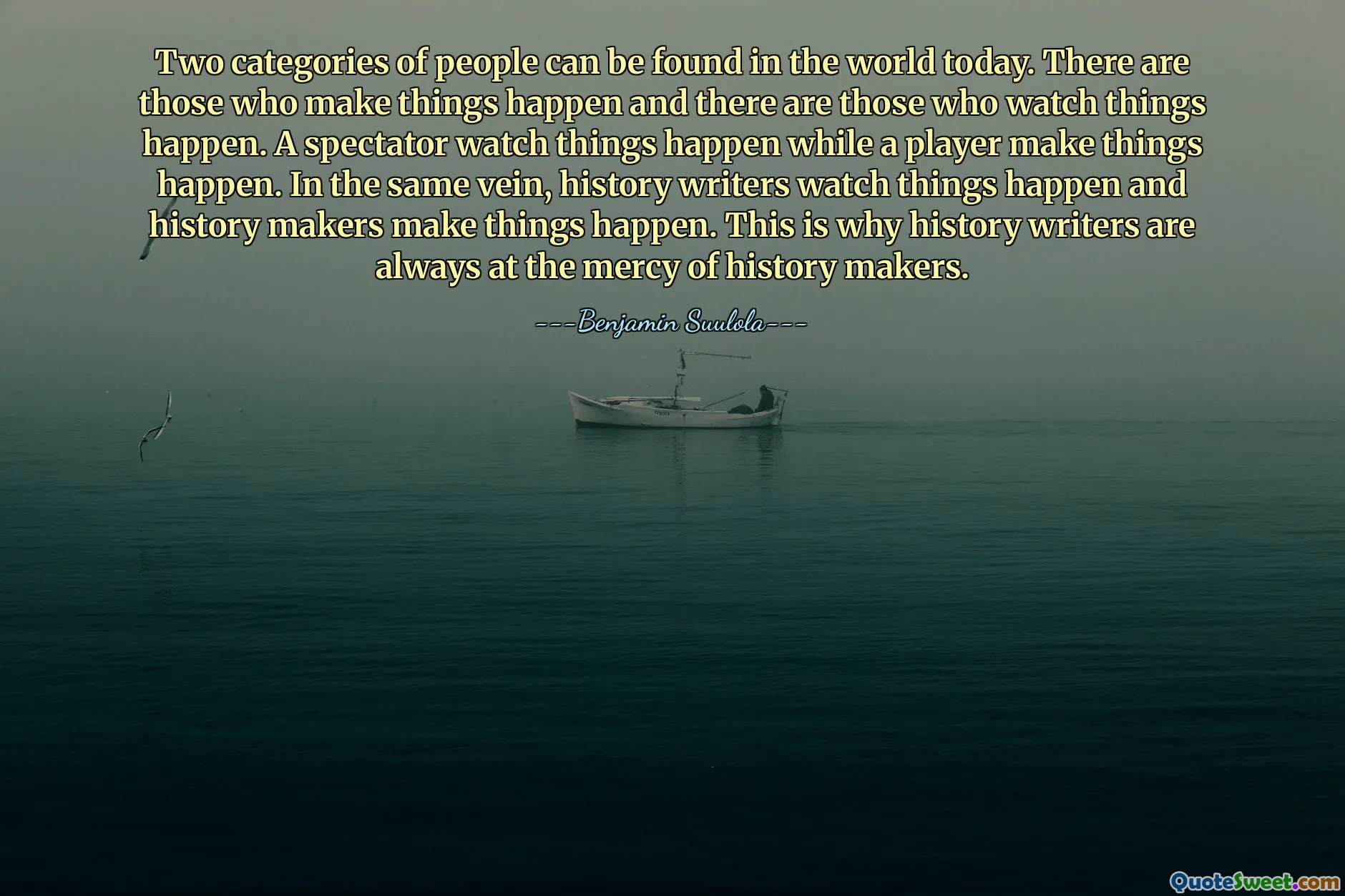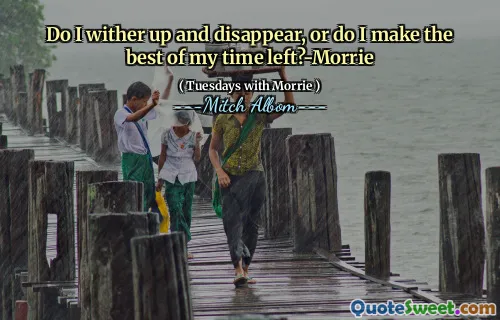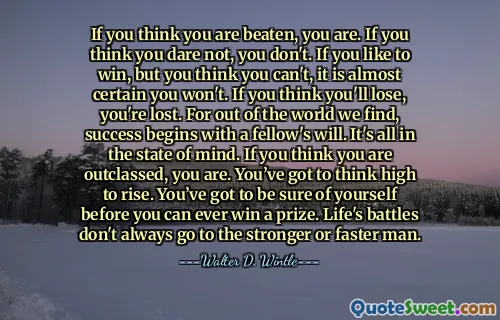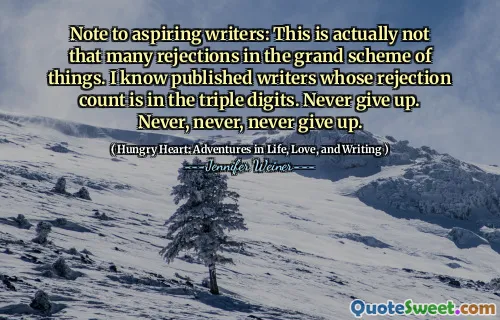
Two categories of people can be found in the world today. There are those who make things happen and there are those who watch things happen. A spectator watch things happen while a player make things happen. In the same vein, history writers watch things happen and history makers make things happen. This is why history writers are always at the mercy of history makers.
This quote compellingly delineates the fundamental contrast between different roles individuals play in the shaping of history and societal progress. At its core, it emphasizes the proactive versus reactive dichotomy—those who make things happen versus those who watch them happen. In our daily lives and larger societal structures, this distinction is profoundly relevant. The 'players' and 'history makers' are the individuals who take initiative, embrace responsibility, and drive change through their actions. Conversely, the observers or spectators passively witness events unfolding without exerting influence.
Reflecting on this, one realizes that the trajectory of history and personal destinies often hinges on proactive efforts. People who seize opportunities, challenge the status quo, and lead change become the architects of their future. Meanwhile, passive witnesses may benefit from or suffer due to these changes but often lack the capacity to shape them. The quote also highlights the power dynamics in storytelling and history writing—those who craft narratives tend to be the ones who have been active in shaping the events themselves. This underscores a vital lesson: to influence the course of history or even personal life outcomes, one must sometimes step beyond mere observation and into active engagement.
Moreover, the quote is a reminder of individual agency and responsibility. In the grand scheme of societal progress or historical records, being a maker rather than a spectator involves courageous decision-making and persistent effort. It urges us to reflect on our roles—are we content to watch life happen around us, or will we strive to shape it? Ultimately, this perspective advocates for proactive participation, resilience, and leadership as the essential qualities to leave a tangible impact on history and one's surroundings.








